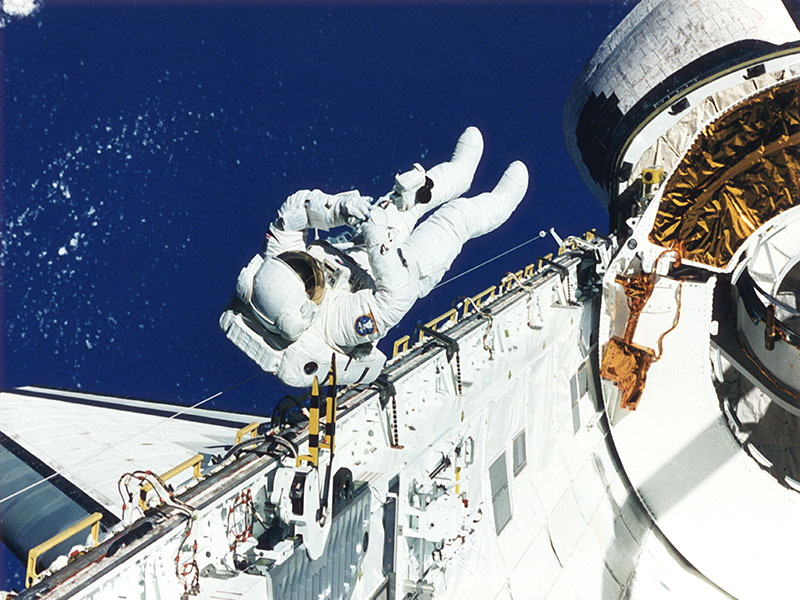
Vision deterioration is a major problem for astronauts who spend extended periods of time in space. Now researchers have identified the likely cause of the problem and a possible way to prevent it.
According to researchers at UT Southwestern Medical Center at Dallas, the probable cause is the lack of a day-night cycle in intracranial pressure — pressure around the brain.
The new study showed that intracranial pressure in zero-gravity conditions, such as exists in space, is greater than when people stand or sit on Earth, but lower than when people sleep.
It might be possible to prevent the problem by using a vacuum device to lower pressure for part of each day, the investigators suggested.
“Astronauts are basically supine [lying face upward] the entire time they are in space. The idea is that the astronauts would wear negative pressure clothing or a negative pressure device while they sleep, creating lower intracranial pressure for part of each 24 hours,” study first author Dr. Justin Lawley said in a university news release. Lawley is an instructor in internal medicine.
The study suggests that the constant pressure on the back of the eye causes the vision deterioration in astronauts during extended space missions, such as on the International Space Station.
Study senior author Dr. Benjamin Levine said that “the information from these studies is already leading to novel partnerships with companies to develop tools to simulate the upright posture in space while astronauts sleep.”
Levine, a professor of internal medicine, explained that the aim is to normalize the daily variability in intracranial pressure and eliminate the remodeling behind the eye.
The study was published Jan. 16 in the Journal of Physiology.
More information
NASA has more on vision impairment and intracranial pressure.
Source: HealthDay

Leave a Reply